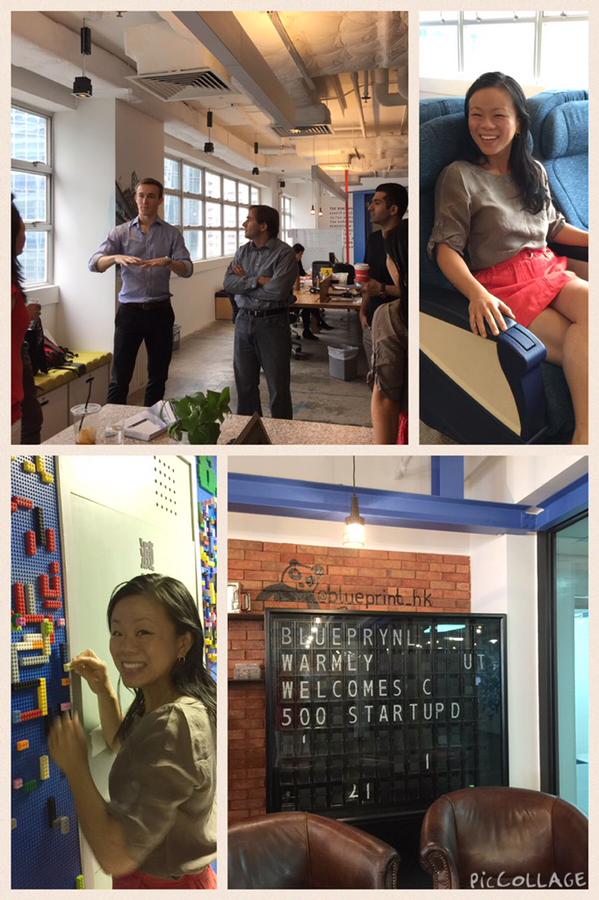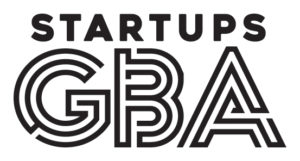
I just got back to the Valley from a Distro Tour of Asia with a group of mentors from 500 Startups.
It sounds glamorous… AND IT WAS.
Aside from doing lots of eating, we also helped 60+ companies in Taiwan and Hong Kong (from a pre-selected applicant pool) tackle their biggest questions in growth marketing, b2b sales, fundraising / pitching, and team leadership with workshops and lots of hands-on office hours.
We learned a LOT about the realities of growing and funding a startup in Taipei and Hong Kong. These are two talent-filled ecosystems in the “Asian Tiger” constellation of developed economies, and they have a lot going for them.
In Hong Kong the companies we met had a solid grasp on their initial customer needs and how to find those first customers.
But, startups and their founders in these regions also face some big, non-obvious realities that pose unique challenges.
From our perspective focused on startup growth and distribution, here are the challenges that stood out to us the most.
1. More competition for talent, less incentive to take risks
Startups in Taipei and Hong Kong compete for talent against corporate career tracks and cultural norms that encourage many would-be startup hires to follow more traditional paths to becoming financially stable and socially acceptable. (Not every culture is as comfortable — or proud – of the traits that have uplifted some in Silicon Valley to the status of beloved iconoclasts.)
Robert from an investor’s perspective:
“These companies are filled with energy, but they are, on average, less sophisticated in terms of use of tools and methods. So although they have the energy and ideas, they need more help to achieve success.
Related to that, there’s less infrastructure and resources for them in terms of financing and people willing to join startups. If I were investing in these markets, I might look for startups that need less support to make it.”
Dominic saw a growth hacker version of this challenge:
“Hiring marketing talent, and convincing them that startups are worth working at, seems to be a lot tougher here.”
2. Access to social capital, aka free love
Startups in these regions have less access to mentors who have been there and done that before — and who are willing to share.
Awhile back, I interviewed the founder of Totspot who almost choked up when he started talking about his experience with 500 Mentors and their generosity and willingness not only in making time for his questions, but also to go the extra mile in helping him find answers and make more connections.
“We were humbled by the sincerity that the mentors showed us. Not only are they subject matter experts, but they’re spending their time with you when they could be with friends or family or building their own business.” – Vijay Ramani, Totspot
Shopline, another 500 company founded and currently based in Hong Kong, found that a few months in the Valley yielded big returns, even for companies who don’t plan to go after English markets.
“In the middle of program, I went back to Hong Kong to do fundraising. Even though our team is from there, all of my meetings were set up through the 500 network. I talk to people from Batch 3 and Batch 4 and it’s all the same family. They’ve introduced me to people I would never have been able to reach myself.” – Fiona Lau, Shopline
3. Access to actual capital
Fundraising is also a unique challenge in the region, even though Hong Kong and Taipei are both strongly capitalized.
Niket’s advice is to find the right investors:
“One of the most critical challenges companies face is access to capital from investors who fundamentally understand how venture-backed companies operate.
Wealthy individuals can be suspicious of startups because their wealth was generated by more fundamental (and tangible) businesses. These wealthy investors can also be more accustomed to large transactions as opposed to the “angel” deals that are much smaller and, while riskier, should be a lot simpler (but often aren’t).
Entrepreneurs need support here. They need access to well-connected investors who are willing to cut smaller checks with less ‘process.’”
4. Growth toolkit
There’s a lot of growth knowledge that we take for granted when we’re surrounded by it 24/7.
Some of our favorite tools — Segment (aggregate / integrate all your analytics), Intercom (event-based email and in-app messaging), Buzzsumo (research the best keywords and phrases for inbound/content marketing), ToutApp (send tracked 1-to-1 emails), UserTesting (qualitative UX testing with real users), SimilarWeb (see where your traffic is coming from), Import.io (data harvesting for good), and Instapage (two words: SMOKE TESTS) — were unheard of by a lot of the companies we met.
The good news is that this is easy to solve, and relates right back to the access to mentors and community of other founders and growth people.
Founders might be too busy to keep up on everything, but GrowthHackers.com is amazingly efficient at surfacing the best new tools and methods, for example here and here.

Growth Going Forward
We’re not experts (yet), and a 9-day tour is barely enough time to scratch the surface, but for startups in the region, here are our ideas for how to take on these challenges.
- Focus on traction, finding your growth levers, and understanding your unit economics before starting to ask for money. “Fundraising” might seem like it’s the defining action for startups, but it’s not. Growth is. If you grow (and consistently work to meet and know the right networks of people), the funds will come. So, in addition to the just plain awesome feeling of actually making the money you need, having positive unit economics will also make your company more attractive for investors and, later, M&A. This is especially true if you can show specific home market advantage alongside your scalable growth.
- If you want to your company to succeed, find or build support systems to enable that success. Entrepreneurs are everywhere, but startup infrastructure is not. Locate and leverage mentors, supplement with online communities, and take a bit of time to get out once in awhile (shameless plug — 500’s upcoming Weapons of Mass Distribution conference in San Francisco is a great place to do that).
- Don’t be afraid to pound the pavement, hustle — and FAIL. The faster you fail, the quicker you get to your small wins. Small win + small win + small win = BIG win.
- Finally, stay open. Openness — amongst the community and with yourself — keeps failure productive, rather than burying it underneath pointless, yet resource-intensive, cultural shame.
Let yourself, and other founders, know: it’s ok to try your ideas out. Investors will also start to get the message that when they back people, for however much money, they’re getting wickedly ambitious and smart people going after bigger and better ideas.
As a final note, we want to say a HUGE thank you to our partners and friends at Blueprint Accelerator in Hong Kong, the Institute of Information Industry in Taipei and Rui Ma and Cjin Cheng on 500’s own investment team for making these events possible.
To all our new friends in Taipei and Hong Kong — see you next time (SOON).
This post was previously published unedited on the 500 Startups blog and we edited it to fit our Hong Kong audience, Susan has graciously allowed us to republish it here at StartupsHK.com – click here to see the full post that includes insight into the Taiwan startup market and more photos of food.
Susan Su (@susanfsu) is a Distribution Content Hacker at 500 Startups – see her profile here.
